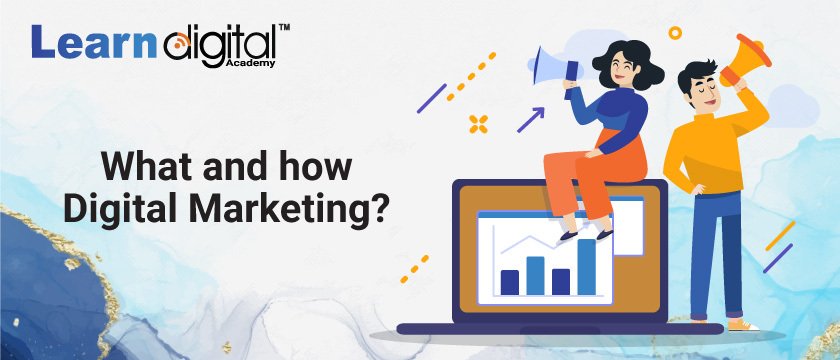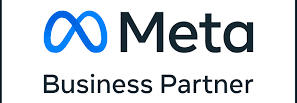
Digital marketing is the component of marketing that utilizes internet marketing and online marketing, digital technologies such as desktop, computers, mobile phones, and other digital media technologies. There are platforms to promote products and services. These developments were during the 1990s and 2000s and changed the way brands and businesses use technology for marketing.
The digital platforms became increasingly incorporated into marketing plans circular and everyday life, and as people increasingly use digital devices instead of visiting physical shops, and digital marketing campaigns have become prevalent, employing combinations of search engine optimization (SEO), search engine marketing (SEM), content marketing, influencer marketing, content automation, campaign marketing, data-driven marketing, e-commerce marketing, social media marketing, social media optimization, e-mail marketing, display advertising, e-books, and optical disks and games have become commonplace.
Digital marketing extends to non-Internet channels that provide digital media, such as television, mobile phones (SMS and MMS), call-back, and on-hold mobile ring tones. The extension to non-Internet channels differentiates digital marketing from online marketing that is known as digital marketing
Also read: Ultimate Benefits of Digital Marketing for Small Businesses
Gartner notes that in the context of modern business, platforms are tools that provide multiple business or technology capabilities. While there are tools to address specific functions within one business need, such as a single tool to schedule social media updates alone, platforms support multiple functions across these needs. Platforms typically enable a more extensive set of functions with APIs, integrations, and partnerships with other applications or data sources.
Now, let’s revisit the initial question. What is a digital marketing platform? A digital marketing platform is a solution that supports a variety of functions within the realm of marketing over the internet.
According to Gartner, it is important to note that to classify as a platform, the solution cannot claim to support every component of digital marketing – but will rather cover functionality like media buying. performance measurement and optimization, and brand tracking. However, it may not cover other marketing efforts like SEO, SEM, Social Media.
-
search engine optimization (SEO)
Search engine optimization (SEO) is the process of improving the quality and quantity of any website traffic to a website or a web page on page and of a page from search engines. optimization (SEO) targets unpaid traffic to a website (known as “natural” or “organic” results of these are the website) rather than direct traffic or paid traffic. Unpaid traffic may originate from different kinds of searches, including image research, video research, academic research, and news research, and industry-specific vertical research engines.
SEO Services Bangalore considers how search engines work, the computer-programmed algorithms that dictate search engine behavior, what people search for, the actual search terms or related keywords typed into a search engine, and which search engines are preferred by their targeted audience. SEO is performed because a website will receive more visitors website from a search engine when websites rank higher on the search engine results page (SERP). These visitors can then potentially be converted into customers
-
SEO
Site design improvement (SEO) is the way toward improving the quality and amount of site traffic to a site or a page from search engines. [SEO targets unpaid traffic (known as “characteristic” or “natural” results) as opposed to coordinate traffic or paid traffic. Unpaid traffic may begin from various types of searches, including picture search, video search, scholastic search, news search, and industry-explicit vertical web indexes.
As an Internet showcasing methodology, SEO thinks about how web indexes work, the PC customized calculations that direct web crawler conduct, what individuals look for, the real hunt terms or watchwords composed into web search tools, and which web search tools are favored by their focused-on crowd. Web optimization is performed in light of the fact that a site will get more guests from a web index when sites rank higher on the internet searcher results page (SERP). These guests can then conceivably be changed over into clients.
Also read: Digital Marketing Strategies 2022
Web indexes utilize complex numerical calculations to decipher which sites a client looks for. In this graph, where each air pocket speaks to a site, programs some of the time called creepy crawlies to inspect which locales connect to which different destinations, with bolts, speaking to these connections. Sites getting more inbound connections, or more grounded joints, are attempted to be more significant and what the client is looking for. In this model, since site B is the beneficiary of various inbound connections, it positions all the more profoundly in a web search. What’s more, the connections “bring through”, with the end goal that site, despite the fact that it just has one inbound connection, has an inbound connection from a profoundly mainstream site while site E doesn’t. Note: Percentages are adjusted.
-
Search Engine Marketing (SEM)
Search engine marketing (SEM) is a form of Internet marketing it involves the promotion of any websites by increasing their visibility in search engine results pages (SERPs) primarily through paid advertising. search engine marketing may incorporate search engine optimization (SEO), which adjusts or rewrites website content and site architecture to achieve a higher ranking in search engine results pages to enhance pay per click (PPC) listings `that are paid services of search engine marketing of any website.
Social media marketing is the use of social media platforms to connect with your audience to build your brand, increase sales, and drive website traffic. This involves publishing great content on your social media profiles, listening to and engaging your followers, analyzing your results, and running social media advertisements.
The major social media platforms (at the moment) are Facebook, Instagram, Twitter, LinkedIn, Pinterest, YouTube, and Snapchat.
There is a range of Social Media Marketing Services tools that help businesses to get the most out of the social media platforms listed above. For example, Buffer is a platform of social media management tools, which can help you achieve success with your social media marketing skill. Whether you want to build a brand or grow your business, we want to help you succeed.



